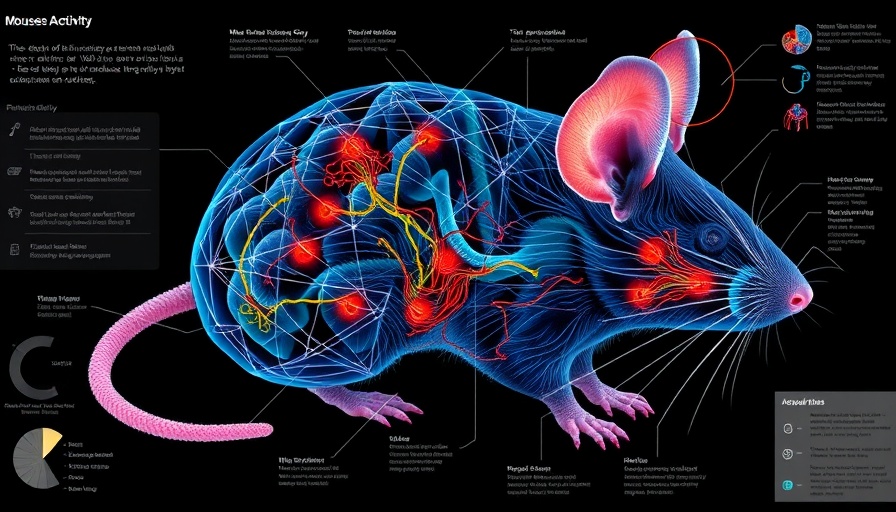Did you know that heart disease remains the leading cause of death worldwide, claiming more lives annually than any other health condition? This staggering fact underscores the critical importance of cultivating a healthy heart, starting today. Cardio Shield offers science-backed methods to fortify your heart health and reduce your risk. Understanding a Healthy Heart: What Science SaysDefining a healthy heartOverview of heart health and its connection to overall well-beingThe role of genetics and lifestyle in heart healthCardio Shield’s focus on supporting a healthy heartA healthy heart forms the foundation of lifelong wellness, supporting every cell in your body by supplying oxygen-rich blood. Science defines a healthy heart by its efficiency and resilience—its ability to pump blood without strain, maintain normal rhythms, and adapt to your body’s needs, from restful sleep to vigorous physical activity. This remarkable organ works tirelessly throughout your life, yet its health can be fragile. Poor lifestyle habits, high blood pressure , added sugar , and saturated fat intake can erode heart function, setting the stage for heart disease and even heart attack .Research makes it clear: a combination of genetics and lifestyle shapes your heart health . While we can't change our genetic risk factors, our choices—especially our eating patterns , physical activity, and stress management—play a huge role in whether we develop problems or thrive. Cardio Shield zeroes in on supporting these very aspects, offering proactive help to maintain a healthy heart and prevent future issues. With a health-focused mindset and science-backed strategies, you can dramatically lower your risk of coronary heart disease and improve your quality of life.Adopting heart healthy habits is about more than just avoiding illness—it’s the key to unlocking energy, mental clarity, and resilience to stress. Small adjustments, like swapping processed foods for more fruits and vegetables or learning how to manage high blood pressure , can make a lasting difference. Whether you're already focused on wellness or just starting your journey, understanding the science behind heart health is your first step to lifelong vitality.Why Cardio Shield is a Game-Changer for Heart HealthWhat is Cardio Shield and how does it support a healthy heart?What sets Cardio Shield apart among heart healthy supplementsScientific evidence and clinical trials for Cardio ShieldPotential benefits for heart health, blood pressure, and circulationCardio Shield elevates the landscape of heart healthy supplements by targeting the root causes of cardiovascular issues, not simply masking symptoms. Unlike generic supplements, Cardio Shield’s formula utilizes carefully selected ingredients with proven effectiveness in supporting heart health . Clinical trials have demonstrated that its unique blend not only aids healthy circulation but also helps manage blood pressure and maintain optimal arterial flexibility.What truly sets Cardio Shield apart is its commitment to scientific rigor. Multiple studies underline the positive impact of its natural compounds on lowering high blood pressure —a leading risk factor in heart disease . Individuals taking Cardio Shield have reported improvements in energy levels and reductions in those critical measurements that flag heart risk, such as cholesterol and blood pressure . The supplement is manufactured using high-quality standards, ensuring safety and efficacy, and is designed to complement—not replace—positive lifestyle changes.Introducing Cardio Shield into your routine can offer real advantages: its antioxidants and botanicals shield your arteries, foster improved blood flow, and may even help protect against oxidative stress that increases the risk of heart disease . Together with nutrition and exercise, Cardio Shield makes it easier than ever to improve your heart , manage high blood pressure , and work toward lifelong wellness.For those interested in a more natural approach to cardiovascular wellness, you may want to explore additional strategies for supporting your heart. Discover how Cardio Shield leverages nature-based ingredients to help improve heart health naturally in this in-depth guide to natural heart health solutions . Adopting a Healthy Eating Pattern for a Healthy HeartHealthy Eating and Impact on Heart HealthCore principles of a healthy eating patternHow fruits and vegetables, whole grains, and lean proteins improve your heartRole of saturated fat and added sugar in heart diseaseSample daily menu for a heart healthy diet (Table below)Embracing a healthy eating pattern is one of the most powerful steps you can take to support your heart. At its foundation, a heart healthy diet is rich in fruits and vegetables , whole grains, lean proteins like fish or poultry, and contains small amounts of healthy fats, such as those from avocados and nuts. These foods provide crucial vitamins and minerals that help regulate blood pressure, lower cholesterol, and fuel your body’s defenses against inflammation.Avoiding processed foods and reducing foods high in saturated fat and added sugar are equally important. Diets dominated by unhealthy fats and sugar contribute to plaque build-up in your arteries and can increase the risk of developing both high blood pressure and heart disease . Swapping sugary drinks for water, replacing processed snacks with raw vegetables, and choosing low-fat dairy are simple habits that will help preserve a healthy heart over time.Making nutritious choices doesn't mean giving up taste or enjoyment. Try the sample heart healthy menu below for inspiration that proves eating well is delicious and satisfying. Remember, every positive change in your eating pattern provides real benefits for heart health —and the earlier you start, the greater the rewards.Sample Heart Healthy Daily Menu Featuring Fruits and Vegetables, Whole Grains, Lean Protein, and Small Amounts of Healthy FatsMealOptionsBreakfastOatmeal topped with berries, sliced banana, and a handful of walnuts; low-fat milk or a glass of waterLunchGrilled salmon or chicken breast, brown rice, steamed broccoli, cherry tomatoes, and half an avocadoSnackCarrot sticks and hummus, or an apple with almond butterDinnerStir-fried tofu with bell peppers, snap peas, and quinoa; side salad with olive oil vinaigretteDessertMixed berries with a spoonful of Greek yogurt, sprinkled with chia seeds Key Lifestyle Habits to Improve Your Heart HealthExercise Recommendations for Maintaining a Healthy HeartTypes of heart healthy exercise: aerobic, strength training, flexibilityFrequency and intensity guidelinesHow Cardio Shield complements exerciseKeeping your heart strong and resilient requires regular physical activity . The American Heart Association recommends at least 150 minutes of moderate-intensity aerobic exercise, like brisk walking, swimming, or cycling, each week for adults. Aerobic activity strengthens your heart, improves blood circulation, and helps manage body weight—a major risk factor for heart disease . Supplementing with strength training (twice a week) tonifies muscles and supports healthy metabolism, while daily stretching or yoga enhances flexibility and stress relief.Fitting exercise into your routine can be easier than you think. Start with daily walks, take the stairs, or try a new group fitness class. Tracking your blood pressure and heart rate with a wearable device adds motivation and helps you monitor progress. Cardio Shield acts as a valuable partner, supporting heart and vascular health and allowing you to maximize the benefits of your workout efforts, especially if you are at higher risk due to age, family history, or pre-existing conditions.Consistency and enjoyment matter most—choose activities that you love, and enlist friends or family to join you for extra encouragement. Making exercise a daily habit is one of the most effective ways to improve your heart and set yourself up for long-term wellness. Managing Blood Pressure and Cholesterol for Heart HealthThe role of hypertension as a risk factor in heart diseaseDietary and lifestyle changes that support healthy blood pressureMonitoring cholesterol, controlling saturated fat intakeHigh blood pressure , or hypertension, is a silent risk factor that can dramatically increase the likelihood of heart attack or coronary heart disease . Similarly, elevated cholesterol levels—especially LDL ("bad" cholesterol)—can lead to dangerous plaque buildup in your arteries. Both of these conditions are heavily influenced by what you eat and how you live. Limiting saturated fat (found in fatty cuts of meat, butter, and full-fat dairy) and added sugar (from sweetened drinks or desserts) is critical.To support healthier blood pressure, focus on eating more potassium-rich foods, such as bananas and spinach, and keep sodium intake low by avoiding processed products. Engaging in regular activity, managing stress, and keeping body weight in check all contribute to lowering your numbers. Monitoring your blood pressure and cholesterol with the help of your doctor enables early action, minimizing your risk of heart complications.Many individuals find that combining dietary improvements with targeted support from solutions like Cardio Shield produces the best results. Improved blood flow, reduced inflammation, and better cholesterol numbers mean a stronger, more resilient heart for years to come.Recognizing and Managing Heart Disease and Heart Attack RisksIdentifying Heart Disease Risk Factors and Early Warning SignsMajor risk factors: blood pressure, cholesterol, smoking, weightDifference between heart attack symptoms in men and womenPrevention strategies and early interventionKnowing the risk factors for heart disease is crucial: high blood pressure , high cholesterol, smoking, being overweight or obese, poor diet, and lack of exercise are the main contributors. Heart attack warning signs can vary between individuals, but common symptoms include chest pain, discomfort radiating to the arm or jaw, and shortness of breath. Notably, women may experience subtler symptoms such as fatigue, indigestion, or upper back pain rather than classic chest pain.Early intervention saves lives. By recognizing and responding quickly to warning signs, you can prevent irreversible damage. Reducing your risk of heart disease requires a multi-pronged approach: regular check-ups, managing blood pressure and cholesterol, maintaining a healthy diet , and seeking help for habits like smoking or excessive drink alcohol consumption.The good news is that most risk factors are modifiable. Comprehensive strategies like Cardio Shield, better nutrition, and more movement empower you to lower your risk of developing heart disease and lead a longer, healthier life."An ounce of prevention is worth a pound of cure." – Benjamin Franklin Making Lasting Change: Building a Heart Healthy RoutineIncorporating Cardio Shield and healthy eating pattern into daily lifeTracking progress and staying motivatedCreating heart healthy habits that stickSustainable heart health comes from routines—not quick fixes. Make Cardio Shield part of your daily regimen alongside a balanced healthy eating pattern to realize compounding benefits for your heart and overall energy. Consistently tracking your blood pressure , recording meals, and celebrating small health wins keep you committed and motivated on your heart health journey.Habits are made (or broken) by repetition. To build a heart healthy lifestyle, start with easy, meaningful changes: add an extra serving of vegetables at every meal, schedule 30 minutes of movement most days, or create reminders to take your supplement with breakfast. These choices become second nature over time, working together to dramatically improve your heart .Set realistic heart health goalsMonitor your blood pressure and cholesterol regularlyInclude a variety of fruits and vegetables in every mealLimit added sugar and saturated fatStay active with enjoyable exercisesRemember, just a few positive steps each week can accelerate progress toward a healthier, more resilient heart—and it’s never too late to start.Expert Tips: Boosting Your Heart Health Beyond DietThe importance of sleep for heart healthStress management techniquesThe benefits of regular health screeningsNutrition and exercise are cornerstones, but true heart health goes further. Quality sleep is essential: adults should aim for 7-9 hours each night for optimal recovery, stress reduction, and hormone regulation. Chronic lack of sleep can contribute to high blood pressure and obesity, amplifying heart risk.Managing stress is equally important for cardiovascular well-being. Practices like meditation, deep breathing, and gratitude journaling help calm your mind and lower harmful hormone levels. Surround yourself with a support network, stay connected socially, and pursue hobbies to balance the demands of daily life.Finally, never underestimate the power of regular checkups and screenings. Periodic monitoring of blood pressure , cholesterol, blood sugar, and weight illuminates your risk profile and highlights areas needing action—fueling informed decisions on your journey to a healthy heart . People Also AskWhat are the signs of a healthy heart?A healthy heart is signaled by consistent energy levels, an absence of chest pain or discomfort, normal blood pressure, and a regular heart rhythm. If you can engage in moderate exercise without unusual fatigue or shortness of breath, and have normal cholesterol and blood pressure readings, these are positive signs your heart is in good condition. Regular health checkups can verify your heart function even if you feel fine.How can I make my heart healthier?You can improve your heart by adopting a heart healthy eating pattern rich in fruits and vegetables, whole grains, and lean proteins. Limit added sugar and saturated fat , exercise regularly, manage stress, and make quality sleep a priority. Supplements like Cardio Shield can offer additional support, especially if you struggle with high blood pressure or cholesterol.What is considered a healthy heart?A healthy heart consistently pumps blood efficiently, maintains normal rhythm, and adapts to your body’s demands. Important benchmarks are healthy blood pressure, optimal cholesterol levels, and the absence of symptoms like chest pain, shortness of breath, or fluid retention. Lifestyle factors, such as exercise and a balanced diet, play a pivotal role in maintaining good heart health.Can my heart be healthy again?Yes—a heart that has been impacted by poor habits or even disease can often regain strength with positive lifestyle changes. Quitting smoking, improving your diet, exercising regularly, taking prescribed medications or supplements, and reducing stress can all help improve your heart health. Always consult with a healthcare provider for tailored guidance and ongoing support.Common FAQs on Building and Sustaining a Healthy HeartHow soon can you see improvements in heart health after making changes? Many people notice improvements in blood pressure and cholesterol within a few weeks of changing their diet and increasing activity. Lasting benefits accumulate over months and years, lowering your risk of heart disease and increasing life expectancy.What are the most heart healthy foods? Foods that top the list for heart health include fruits and vegetables , fatty fish like salmon, whole grains, nuts, seeds, avocados, and olive oil. Minimizing processed foods , added sugar , and foods high in saturated fat provides extra protection.Is Cardio Shield suitable for everyone? Cardio Shield is generally recommended for adults seeking to support heart health , but those with chronic health conditions, allergies, or who are pregnant should consult with a healthcare provider before starting any supplement.How does blood pressure control influence heart health? Maintaining normal blood pressure takes strain off your heart and arteries, drastically reducing the risk of heart attack , stroke, and kidney issues. Daily monitoring and effective management strategies are key.What roles do genetics and family history play? While you can’t change your genes, knowing your family history can guide earlier screening and more proactive care. Healthy habits and supplements like Cardio Shield help counteract inherited risks for heart disease . Update Watch this step-by-step guide for simple, delicious meal prep that supports a healthy eating pattern . Discover how to build balanced plates with fruits and vegetables , whole grains, and lean protein while minimizing saturated fat and added sugar .Final Thoughts: Taking Charge of Your Heart Health with Cardio ShieldYou have the power to dramatically improve your heart health by adjusting your eating pattern, incorporating regular exercise, managing stress, and making informed supplement choices like Cardio Shield.Begin today—your future self and your heart will thank you.Take action now: adopt a healthy routine, support your heart with Cardio Shield, and enjoy a lifetime of vitality.As you continue your journey toward a stronger, healthier heart, remember that every positive step counts—whether it’s a nutritious meal, a daily walk, or a mindful moment of rest. If you’re looking to elevate your heart health even further, consider the profound impact that regular movement can have, especially as you age. Discover the key benefits of dedicating just 30 minutes a day to physical activity after 40, and unlock new levels of energy and cardiovascular resilience by exploring the science-backed advantages of daily movement for heart health . Your commitment today lays the foundation for a vibrant, heart-healthy future.Learn more about Cardio Shield by clicking here. SourcesAmerican Heart AssociationU.S. Centers for Disease Control and Prevention – Heart DiseaseNational Heart, Lung, and Blood Institute – Heart-Healthy LivingNational Institutes of Health: Diet and Heart Disease ReviewMayo Clinic – Heart Health Diet

 Add Element
Add Element  Add Row
Add Row 



Write A Comment